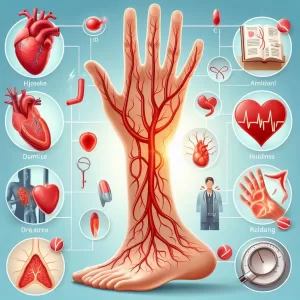Qu'est-ce qu'un pharmacien?
[wp_show_posts id=”2446″]
## What Is a Pharmacist?
**Definition**
A pharmacist is a licensed healthcare professional who specializes in the safe and effective use of medications. They work alongside other healthcare providers to optimize patient care by ensuring the appropriate selection, dosage, and administration of medications.
**Key Responsibilities**
* Dispense medications prescribed by doctors and other healthcare providers
* Provide patient counseling and education on medication use
* Review and interpret medical prescriptions
* Monitor and adjust medication regimens as needed
* Manage and maintain patient medication records
* Work with physicians, nurses, and other healthcare professionals to develop and implement medication therapy plans
* Stay up-to-date on the latest drug information and advancements
**Qualifications**
* **Education:** Doctor of Pharmacy (Pharm.D.) degree from an accredited pharmacy school
* **Licensure:** Board certification as a licensed pharmacist in the state where they practice
* **Continuing Education:** Completion of continuing education courses to maintain licensure
**Specialty Areas**
* **Clinical Pharmacy:** Focuses on patient care in various healthcare settings, such as hospitals and clinics
* **Community Pharmacy:** Provides medication dispensing and counseling services in retail pharmacies
* **Industrial Pharmacy:** Works in the pharmaceutical industry, developing and manufacturing drugs
* **Nuclear Pharmacy:** Handles radioactive materials used in medical imaging and treatment
**Importance**
Pharmacists play a crucial role in ensuring the safe and effective use of medications. They serve as valuable resources for patients and healthcare providers, providing expert guidance on medication management. By ensuring the proper use of medications, pharmacists can improve patient outcomes, prevent adverse drug reactions, and reduce healthcare costs.
**In Summary**
Pharmacists are healthcare professionals who specialize in medication management. Their responsibilities include dispensing medications, providing patient counseling, reviewing prescriptions, and working with other healthcare providers to optimize patient care. Licensed pharmacists with a Pharm.D. degree play a vital role in ensuring the safe and effective use of medications, leading to improved patient outcomes and healthcare cost savings.
## What Is a Pharmacist?
**Definition**
A pharmacist is a licensed healthcare professional who specializes in the safe and effective use of medications. They work alongside other healthcare providers to optimize patient care by ensuring the appropriate selection, dosage, and administration of medications.
**Key Responsibilities**
* Dispense medications prescribed by doctors and other healthcare providers
* Provide patient counseling and education on medication use
* Review and interpret medical prescriptions
* Monitor and adjust medication regimens as needed
* Manage and maintain patient medication records
* Work with physicians, nurses, and other healthcare professionals to develop and implement medication therapy plans
* Stay up-to-date on the latest drug information and advancements
**Qualifications**
* **Education:** Doctor of Pharmacy (Pharm.D.) degree from an accredited pharmacy school
* **Licensure:** Board certification as a licensed pharmacist in the state where they practice
* **Continuing Education:** Completion of continuing education courses to maintain licensure
**Specialty Areas**
* **Clinical Pharmacy:** Focuses on patient care in various healthcare settings, such as hospitals and clinics
* **Community Pharmacy:** Provides medication dispensing and counseling services in retail pharmacies
* **Industrial Pharmacy:** Works in the pharmaceutical industry, developing and manufacturing drugs
* **Nuclear Pharmacy:** Handles radioactive materials used in medical imaging and treatment
**Importance**
Pharmacists play a crucial role in ensuring the safe and effective use of medications. They serve as valuable resources for patients and healthcare providers, providing expert guidance on medication management. By ensuring the proper use of medications, pharmacists can improve patient outcomes, prevent adverse drug reactions, and reduce healthcare costs.
**In Summary**
Pharmacists are healthcare professionals who specialize in medication management. Their responsibilities include dispensing medications, providing patient counseling, reviewing prescriptions, and working with other healthcare providers to optimize patient care. Licensed pharmacists with a Pharm.D. degree play a vital role in ensuring the safe and effective use of medications, leading to improved patient outcomes and healthcare cost savings.
2 commentaires
Laisser un commentaire
Articles populaires








Nice
What Is a Pharmacist